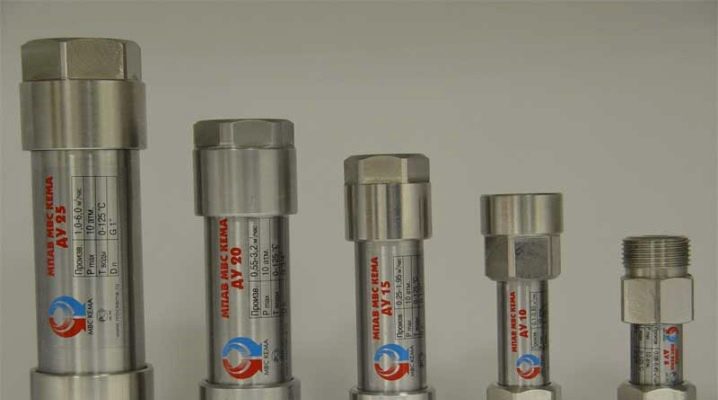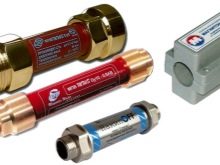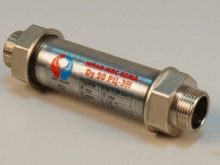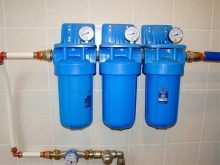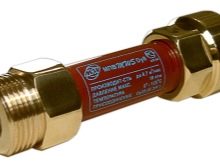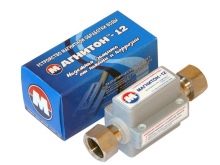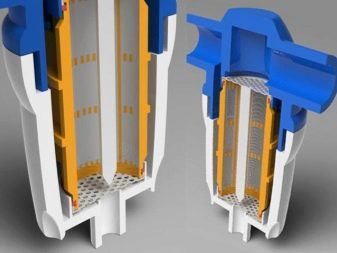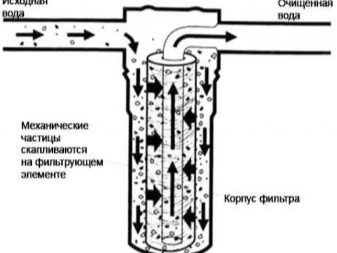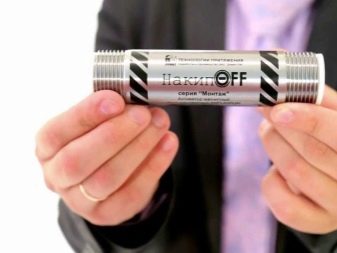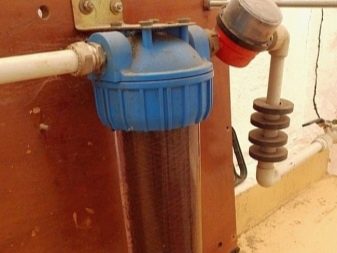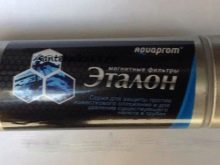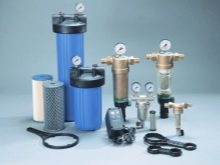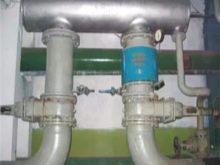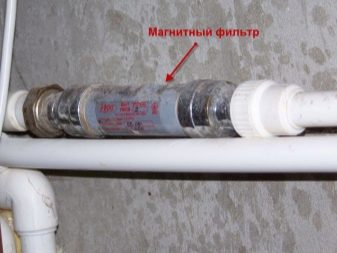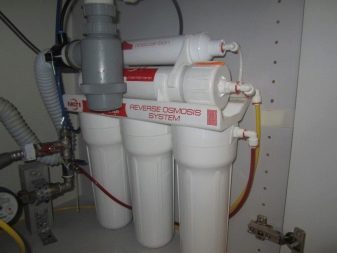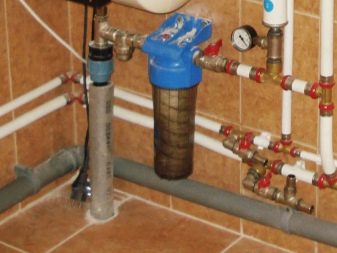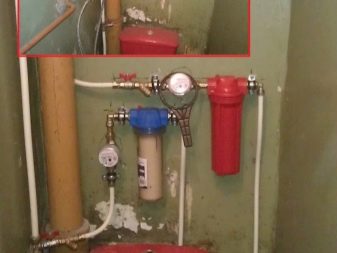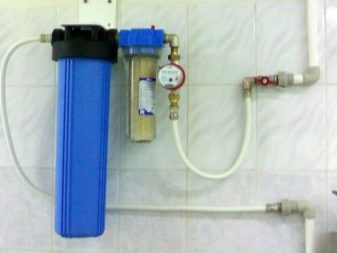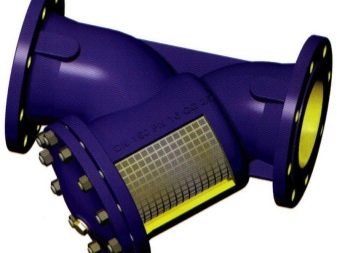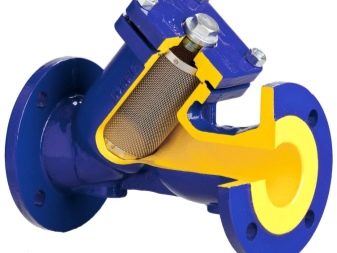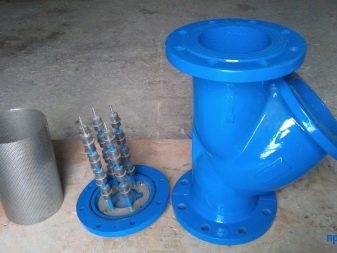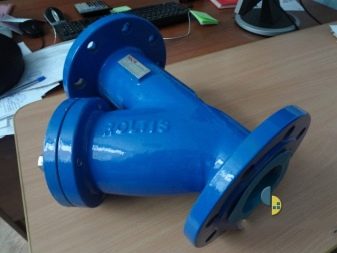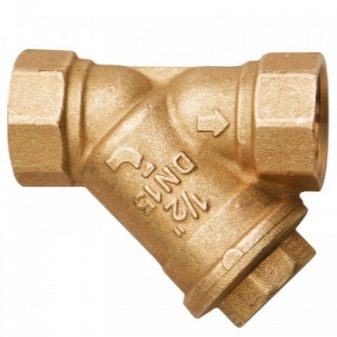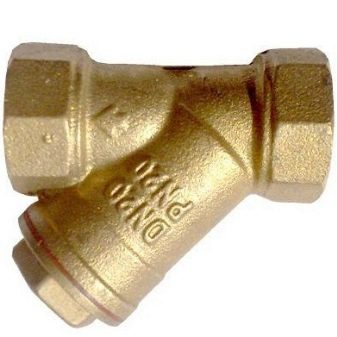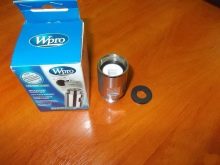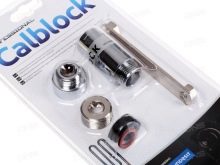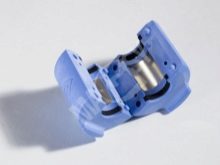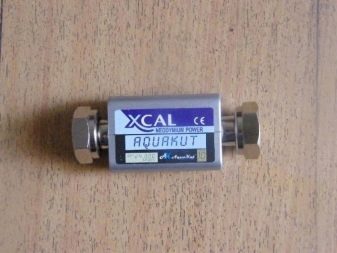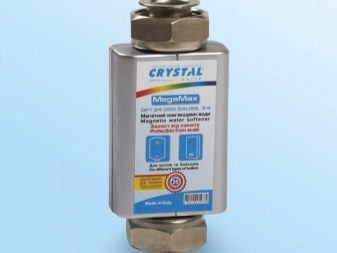Features of magnetic water filters
Magnetic filters are commonly used to effectively soften water - the installation of such a device has many advantages. It is a well-known fact that a large amount of potassium and magnesium salts harmful to the human body make the water hard, and if they are not removed from the liquid, all of them, together with lime deposits, will get directly into the human body. If you use this water regularly, the calcium salts will lead to the formation of sand, which eventually accumulates in the kidneys and turns into stones.
Special features
A distinctive feature of magnetic devices is their influence on the structure and composition of water through magnetic fields. Water has a rather complicated ionic composition, since all sorts of salts and other chemicals are dissolved in it.When ions are transported along with the flow of water through the magnets, they are completely redistributed in the layers of the liquid flow, and as a result, the salts, which make the water more rigid, are converted into colloidal particles and leave the solution.
This significantly reduces salt deposits on the inner walls of the heat exchanger during heating, in other words, a magnetic filter prepares water for heating, reducing the likelihood of scale formation.
In addition, magnets significantly change the structure of running water itself, bringing it closer to spring water in its properties - this made the installation of filters in the water purification system popular.
From the point of view of design, such filters can be implemented in several versions, differing in performance, dimensions and weight. They look like metal cases or polymeric materials into which magnets made of iron alloys with a high degree of field strength are embedded.
Operating principle
The principle of operation of a magnetic filter is based on the physicochemical features of solutions of cations and anions at the time of movement through magnetic fields with a given speed.The effect increases significantly with an increase in the intensity index, in other words, the stronger the magnet is, the stronger the effect can be achieved, and also with an increase in the water flow rate (if it is stationary, then the desired effect is not observed).
The magnetic field affects the salts of magnesium and calcium dissolved in a liquid and stimulates their crystallization. In addition, there is a rather intensive release of air contained in the water in the form of tiny bubbles, which significantly reduces the hardness of the water, and also eliminates the prerequisites for the onset of oxidative processes inside the system.
The mechanism of action in this case is the following: the magnetic field irradiates the liquid, literally penetrates it with its lines of force. Under this massive influence of hardness salts no longer form new substances and begin to change. If earlier they had a rectangular shape, then after the impact of the magnet they began to look like a thin needle. Thus, the salts can no longer stick, but they can scratch, so the needles are collected in special crystallization centers.
It should be noted that they are quite sharp, and since they cannot stick in such a state, they begin to rub and prick the surface.Such an attack can not stand even the oldest scale and begins to peel off.
Of course, all this activity occurs at the level of ions and molecules, so it is impossible to see the "traces of struggle" for the human eye - such cleaning does not leave cuts and scratches on the inner surface of the pipes.
A similar effect is of great importance for the efficiency of heating systems, various water heating installations, columns and boilers. The use of magnetic filters allows not only to save water heaters from the formation of scale, but also causes the crushing of already existing solid deposits on the inner walls of pipes and heat exchangers.
It is very important that in the process of magnetization of water, the concentration of chemically active chlorine and oxygen dissolved in a liquid is significantly reduced, the indicator of the microbiological number of water is reduced, its acidity decreases, and the natural structure is restored. All this makes water beneficial to humans and reduces the risk of developing chronic diseases.
Advantages and disadvantages
Magnetic filters have both their pros and cons. Let us dwell on them in more detail.
From the advantages of the design, you can specify:
- small dimensions - filters take up little space, they are light and compact, so they can be mounted in rooms of any type and size;
- the filter is put on the pipes outside, therefore there is no need to dismantle the existing pipeline;
- You can find a variety of models on sale: these can be tubes, small square boxes and others, so that everyone can choose the best option that suits the conditions of an apartment or a private house more than others;
- the filter starts working immediately after its installation - no additional connection is required;
- the mechanism is easy to use - after fixing it, you can safely forget about it for several years, the magnetic device runs smoothly until the end of the service, without requiring special maintenance;
- the device works due to its own magnetic field - it does not need any additional power source;
- in work there is no need to replace cartridges and other types of consumables;
- using a filter reduces the chance of rusting by 50%;
- is an environmentally safe device;
- significantly eliminates the risk of creating emergency situations.
Of the minuses, you can identify a few points.
- Over time, the cleaner is oxidized, and an unpleasant bloom of green color may appear on the water, which visually looks like molten clay. However, it is absolutely harmless to human life and, moreover, is easily removed.
- Water over time "gets used" to the filter, which leads to a decrease in filtration efficiency. In order to avoid this effect, it is necessary to periodically remove the filter, and then return it to its place, having previously cleaned the pipe of dirt accumulated inside it.
- When the flow of water stops, the efficiency of the device becomes zero.
- Most magnetic filters are designed to process water at room temperature and below; if the liquid is hot, filtration is not performed.
Scope of filters
Magnetic filters can be used in all situations where you need to soften hard water. Moreover, they are established even in those situations when the concentration of salts does not exceed the standard values. However, it is required to protect household appliances from the accumulation of lime scale,which is one of the main causes of breakage of washing machines, electric heaters and similar devices.
The magnetic device is combined with any equipment, it is installed on hoses and pipes, which lead to:
- heating boilers;
- boilers;
- cooling systems:
- water pipes;
- columns and pumping stations.
Magnetic filter installation
The magnetic filter can be easily and quickly installed on your own without recourse to the services of specialists, but if you are dealing with old pipes with an existing coating, then some work skills will still be required.
The sequence of actions for the installation of the softener includes several operations.
- First you need to cut a small piece of pipe, for this you can use the grinder or scissors on metal plastic. Do not forget to first turn off the taps with water, which are usually located near the counters.
- Directly under the wiring, you should put a basin or lay a well absorbing rag, because during the work quite a lot of water flows out of it - all liquid should be drained completely.
- Tubes need to be cleaned of scale and accumulated dirt inside and outside.
- It is necessary to reel the fum-tape on sections and fasten the fittings with adapters, which must necessarily correspond to the size of the filter itself.
- The filter is fixed on the pipe, and then carefully attract all the necessary fasteners.
- After that, you can turn on the water and make sure there are no leaks. If the water does not seep through the joints - this means that the installation was carried out correctly, and you can safely use the filter.
Kinds
Let us dwell on the most popular options for magnetic filters.
Magnetic Flange Filter
By its design, it is not significantly different from the usual coarse filters, which are used to rid the liquid of suspended particles, at the same time, it quite reliably saves the liquid from iron salts.
This model is made of cast iron, due to a special seam connection, water has access from the flask to the grid. The diameter of such a filter, as a rule, does not exceed 20 cm, since the probability of deformation of the folded bend relative to the body is high.
Seam filters effectively purify water from sand and all kinds of silt deposits, as well as from other types of solid impurities.The device has a plastic case, equipped with three outlets, which are used for the supply and subsequent removal of water, as well as an outlet for the slag flow. The device is equipped with a grid of steel and a special plug tightness.
In this filter, water purification is carried out in two stages:
- suspended particles are filtered by a special mesh;
- magnetic field removes ferro compounds.
The magnetic-faltsevy filter is distinguished by its structural simplicity and ease of installation and maintenance. It can work at any temperature and at the same time quite effectively removes water from iron salts. The cost of such a device is low, which makes it popular among users.
Among the shortcomings, it is possible to note the extremely low degree of purification from the dangerous salts of magnesium and calcium.
Magnesium Coupling Filter
This device is similar in principle to the magnetic-flange. At the same time, due to the special coupling coupling, the bending deformation relative to the body is maximally reduced, therefore its diameter can reach 50 mm.
Such a device is widely used in areas where there is a high content of ferroalloys in water.and also where there is an extensive contamination of drinking water with rust (this often happens with old water pipes). The clutch filter has a reliable tightness, however, the strength at the interface is much lower than that of the flange version.
Magnetic Softener
This is a special case of using magnetic filters. The principle of their operation is such that they do not precipitate calcium and magnesium salts, but simply transfer them to relatively safe compounds for household appliances. Such models are widely used in everyday life for the purification of drinking water in apartments and houses.
Reviews
In the Russian market, magnetic filters appeared quite a long time ago, so many users have already been able to evaluate their advantages and disadvantages.
As the reviews show, this magnetic, like electromagnetic, devices are distinguished by rather doubtful efficiency when cleaning tap water.flowing from a simple tap in houses and apartments. Already in the kettle are well noticeable salts, which, moreover, give a rather unpleasant taste.
If the filter is used in conjunction with a gas column, the effect is present, but rather dubious, since scale is still formed on the pipes, albeit in smaller quantities.
But for heating systems, there is an effect, and it is quite tangible, if in residential premises the water in the water supply system meets the basic requirements that are suitable for filters, then the acquisition of a magnetic installation is justified - for most users, for cleaning the fluid, this is the best option.
An overview of the magnetic filter is in the next video.
